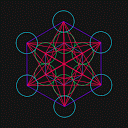It does not seem that long ago that a women’s seder was a clarion call to consciousness as we as participated in an alternative telling of our own history. The dilemma for some at that time was whether to call such a gathering a women’s seder or a feminist seder. In 1995 when I first published Towards Freedom as a mystical, feminist haggadah for women and men, the adjective ‘feminist’ instead of ‘women’ seemed most appropriate for bringing the story of women by women to a larger audience. Today our perspective broadens further as we inclusively welcome family and friends who no longer think in binary terms. Our values, ethnicity and beliefs are diverse, yet the search for liberation and acceptance is universal.
We stand on the precipice of a monumental and universal transformation of mindset from ‘me’ to ‘we’ as the events of the larger world become the reality of us all. Are present life threatening pandemics and global climate change, Nature’s response to our hierarchical separation? Tragically as the homelessness and hopelessness of the refugee is the reality for millions, we come together again this Passover to share our story of exodus and redemption with more urgency than ever. We are taught we were all once slaves in Egypt and must never forget. How can we as we look around us?
Now may be the perfect opportunity to look within —to consider the chametz ( remnants of the past that no longer serve us and which we clear prior to the festival of Passover)) of our own beliefs, behavior and attitudes that reverberate and enhance the importance of ‘me’ over ‘we.’ Are we ready to step out of the rampant fear of the moment, so palpable on our planet and hold a vision of light and love for the well-being of all and the earth that sustains us? Is our individual responsibility in making the world a better place to stand up for oneness as a celebration of our diversity? Are we able to understand that unity is not uniformity? As we feel one another’s pain and cry each other’s tears, the story of the exodus from constriction can be seen as a universal mystical map that can lead the way.
If the Passover celebration is to be more than words connecting us to our past, we can take to heart the Jewish archetypal story of the journey to freedom from which the hero returns bearing a gift for humankind. Like the ancient Israelites, we too wander in a frightening, foreign world of uncertainty— yet one filled with miraculous possibilities. What gift we can bring to our troubled world this year? As we witness the hopelessness of those forced to flee the life they knew, the echoes of our own Jewish experiences ring loud. With hearts and consciousness awakened, we commit to living in a space of appreciation for all we have as we commit to tikkun olam. While we cannot heal the world on our own, we each have a tiny and significant role to play in repairing the brokenness around us— and it all starts with overcoming a sense of separation of ourselves from one another, from Nature and ultimately from Divinity.
Perhaps it begins with words that so deeply interconnected with our thinking. A women’s seder or a feminist seder? How do we define feminism? For me a feminist is one who honors ‘otherness’ whatever that otherness may be. How do you define feminism? If it is an honoring of ‘otherness,’ may your sederthis year be as inclusive and life-changing as such a definition impels us to be.
